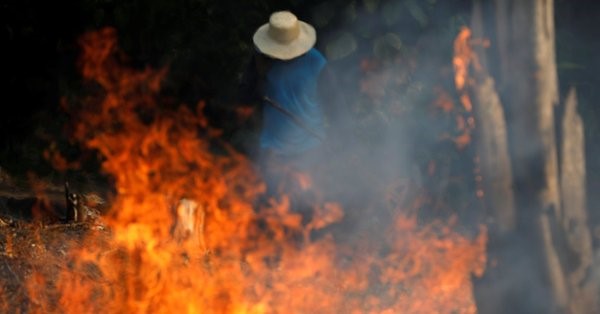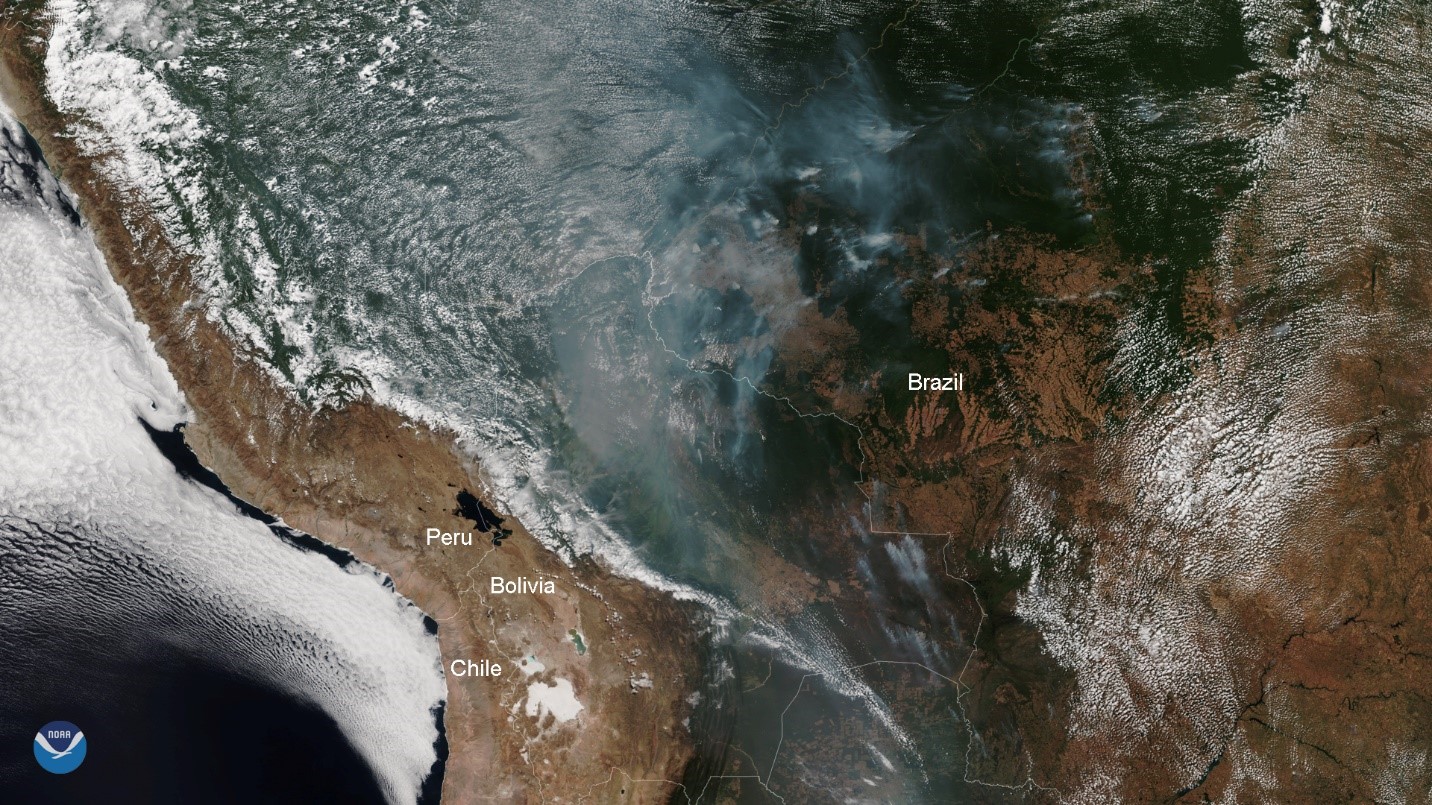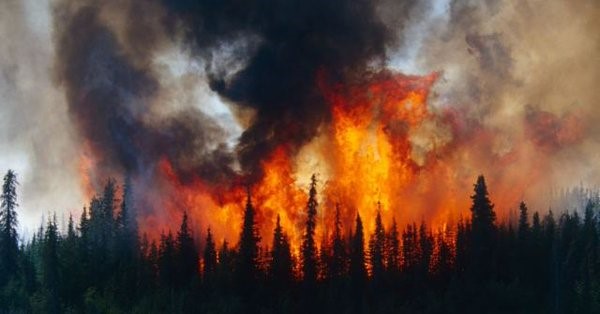By: Kendjana Adolphe
This year, an unprecedented number of fires has been observed in Brazil, mostly in the Amazon Rainforest. This number has increased in August; more than 80,000 fires have been recorded throughout the year. 80% more than the number of fires in the past year.
The Amazon Rainforest which covers a large part of Northwestern Brazil, and extends into Columbia, Peru and other South American Countries number 6 percent of the oxygen made by photosynthetic organisms on the planet. It is the largest tropical rainforest and is known for its biodiversity being proverbially called the “lungs of the planet,” as is its vast amount of trees take in carbon dioxide and release oxygen. It plays a vital role in taking away planet-warming greenhouse gases from the atmosphere. With its dissolution, the largest rainforest will not be able to provide the same buffer to the planet anymore
Consequently, these fires threaten a large number of species that inhabit this ecosystem, but also the forest is at risk of turning into a desert unable to sustain itself. According to theverge.com, deforestation, along with improper practices, are to blame for most of the flames.
“There is no doubt that this rise in fire activity is associated with a sharp rise in deforestation,” said Paulo Artaxo, an atmospheric physicist at the University of Sao Paolo. He explained to Sciencemag.com on Aug 26 that the fires are expanding along the borders of new agricultural development, and that is observed only in fires related to forest clearing.
Additionally, the Amazon is the world’s top exporter in beef which has led some person to believe that the fires were intentional, to clear the forest. Cathelijne Stoof, a coordinator of the fire center at Wageningen University, said that “they want to get rid of the forest to make agricultural land for people to eat meat,” as reported by theverge.com on Aug. 28. This arson appears to be encouraged by the Brazilian administration to develop the rain forest.

Large fire in the Amazon Rain Forest.
Jacqueline Robbins, Instructor of Chemistry and Physical Science at University Campus, also believes that the fires were not a work of nature. Robbins stated that even if natural wildfires usually occur in the area, they are rarely as large as the ones occurring this year. The immense size of the fires leads Robbins to believe that human interference played a role in what happened, either intentionally or accidentally. Robbins said, “Clearing and burning trees for other purposes is very harmful.”
Prof Robbins believes callous actions like deforestation through the setting of wildfires can be detrimental for the people in the countries where these actions are carried out and by wider extension the planet.
“In South America and other places like Alaska, which have been experiencing wildfires as well, there are prevailing winds, trade winds; they set up atmospheric cells, where the atmosphere mixes,” Robbins explained.
She continued, “This smoke from either of the southern or northern fires atmosphere does not stay there, it travels. It will surely impact the air in other places.”
Robbins’ ideas join that of Thomas Lovejoy, Professor of environmental science at George Mason University, who believes that the “release of the 90 Billion tons of carbon stored in the forest is not a good thing for the atmosphere” as reported by the Washington Post on Aug. 27
A situation like the deforestation of the Amazon Rainforest will only increase global warming, slowing down any present fight against climate change. As some believe the planet to be in danger, others do not think that this phenomenon will imperil everything that lives in it, as written by Peter Brannen on theatlantic.com.
Shannan Peters, a geologist at the University of Wisconsin imagined what would happen if we burned down the Amazon, and every forest on Earth, every blade of grass, every moss, flowers, bees, orchids, hummingbirds, all the phytoplankton, giraffes—everything besides humans; there still would be virtually no change when it comes to the Oxygen we are breathing. As reported by The Atlantic, the concentration of Oxygen would only drop from 20.9 percent to 20.4 percent.
“Generations of humans would still live out their lives, breathing the air around them,” said Peters.
However, worldwide, the situation had stirred concerns, particularly when the French President Emmanuel Macron called for action and offered more than $22 million in aid to Brazil on August 22nd. His Brazilian counterpart, Jair Bolsonaro promptly refused it, accusing him of treating Brazil like a colony. What was even more perplexing was the fact that Bolsonaro accepted $12.2 million in aid from the UK.

Picture captured by the VIIRS sensor onboard NOAA-20. Visibility of the smoke from the fires in different places, absorbing the sunlight.
United States President Donald Trump, congratulated Bolsonaro on how he handled the catastrophe. “He is working very hard on the Amazon fires and in all respects doing a great job for the people of Brazil,” he tweeted on August 27. Ivan Duque, President of Columbia, is intending to submit a regional pact to the UN General Assembly. The pact will be for the conservation of the Amazon before the UN General Assembly, scheduled for September, as reported by France24.com.
Internally, Bolsonaro deployed the military to help battle the fires on August 24, sending 44,000 troops to 6 states. However, Bolsonaro, chairman of the national forest fire management committee of the National League of Military Firefighters Corps in Brazil, said that they need more equipment and infrastructure to face the flames. The Bolivian government also brought in a modified Boeing 747 supertanker to extinguish the flames.
Professor Robbins said the population could take several actions to help the planet. Those with the possibility are welcome to “start putting lands, make them protective lands so that they could not be cleared nor developed, and leave them for us as natural resources to generate oxygen for the planet.”





